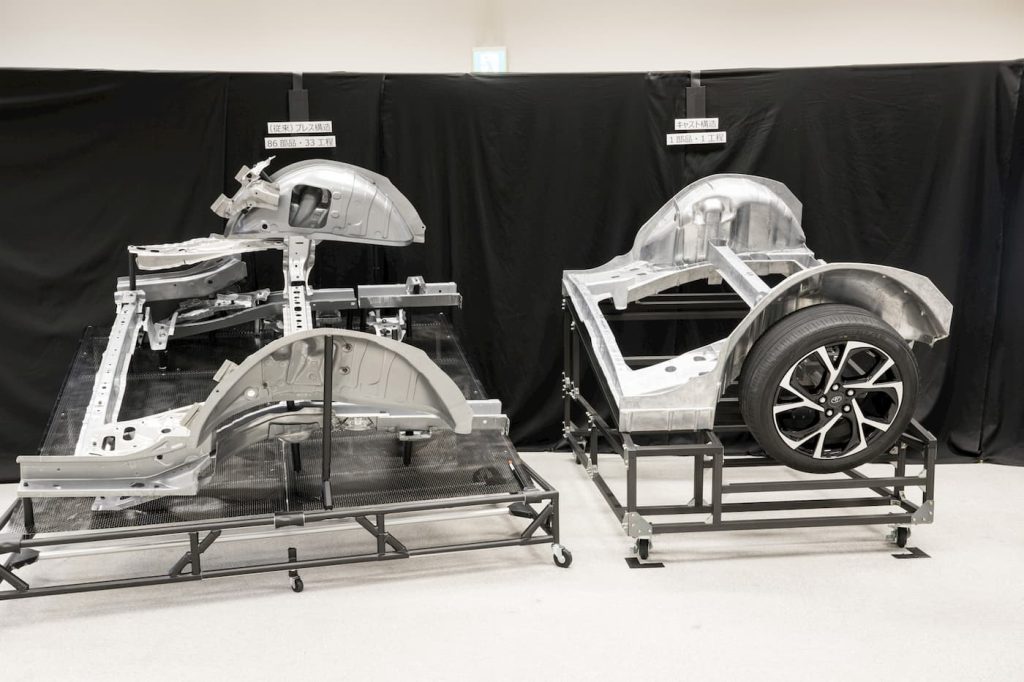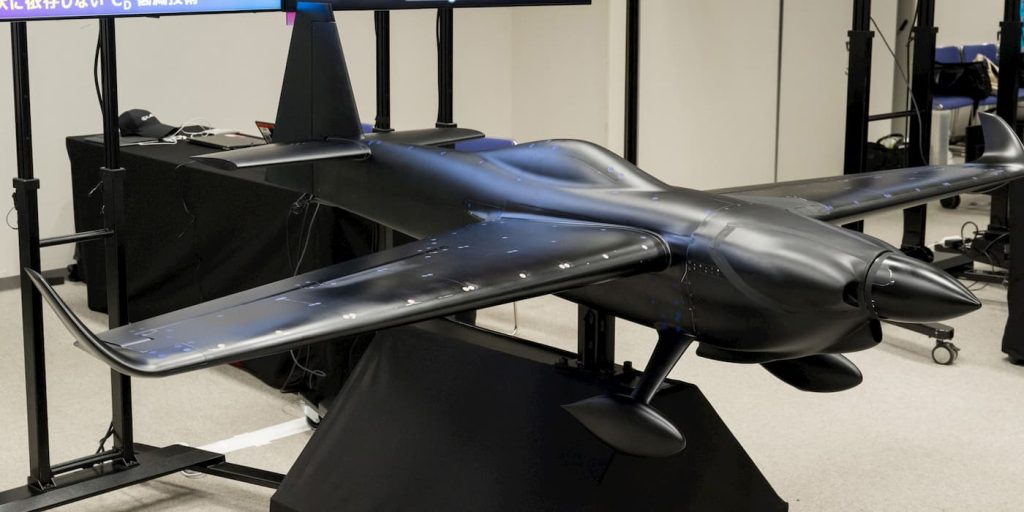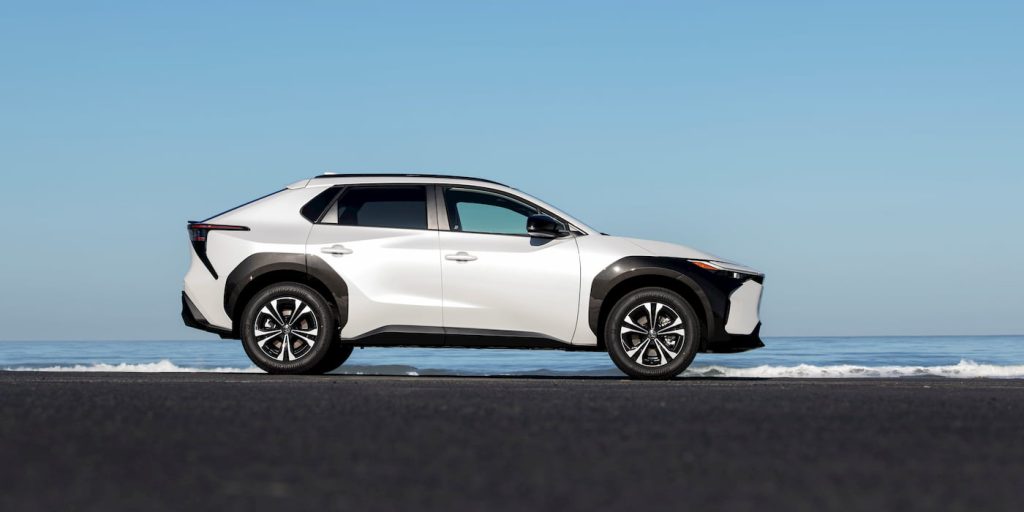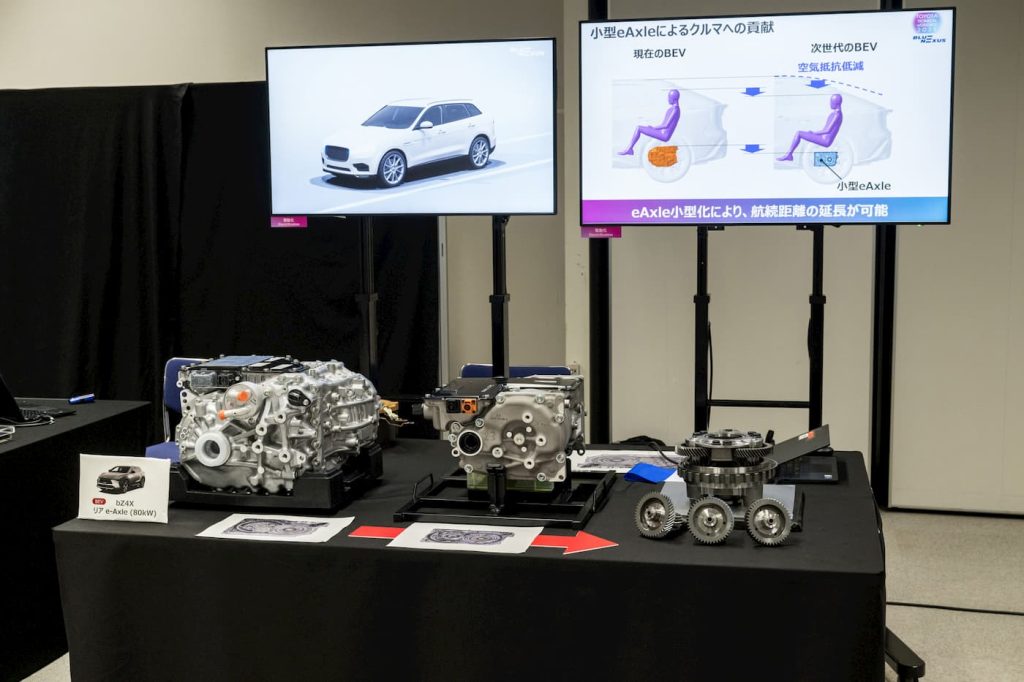
At a recently held technical briefing, Toyota revealed plans for several new technologies, including next-gen EV batteries, aerodynamic drag reduction, and manufacturing upgrades to help transform the company in the electric era. After discovering a breakthrough, Toyota says it aims to offer solid-state state EV batteries that could potentially offer over 900 miles driving range.
Several Toyota executives spoke at the event, explaining the automaker’s upcoming EV tech strategy with concepts that are under development.
Although governments and investors are urging Toyota to go all-electric, the Japanese automaker continues to stick to a hybrid strategy that includes EVs, PHEVs, HEVs, and fuel cell vehicles (FCEV).
Toyota did reveal several new innovations to support its next-generation EVs, including the following:
- Manufacturing upgrades to reduce costs
- Hypersonic tech to enhance aerodynamics
- EV battery tech, including solid-state batteries
- Fundamental changes to improve EV product appeal
To ensure its future EVs are profitable, Toyota says it will incorporate a simple and slim vehicle body structure through Giga casting. The process used by Tesla simplifies manufacturing by reducing the number of pieces needed to make the car.

Toyota will also integrate technology like a self-propelling assembly line to enable mass-produced cars to move along the assembly line independently.
Through the investments, Toyota aims to cut production lead time, production processes, and factory investment for mass-produced EVs by 50%, a significant fixed cost reduction.
The Japanese automaker is also studying new technology that can reduce drag, such as hypersonic tech used in rockets, for its EVs. Toyota says it’s exploring innovations with the Space Systems Division of Mitsubishi Heavy Industries.

Toyota’s new EV battery tech roadmap
One of the biggest takeaways from Toyota’s briefing was its next-gen EV battery tech. Toyota says it’s advancing its efforts to introduce its next generation of electric vehicles in 2026 with a cruising range of over 620 miles (1,000 km).
The automaker plans to expand its lineup to provide various options to offer buyers more driving range at lower costs.

Toyota will offer two next-gen battery types in 2026 and 2027, including performance and popularized versions. The performance will use the same lithium nickel cobalt manganese (NCM) battery chemistry as the bZ4X electric SUV, but will offer 20% more driving range with a 20% cost reduction.
The bZ4X offers 382 miles (615 km) CLTC driving range (however, only 252 miles EPA range), so a 20% increase would be just over 458 miles CLTC.
The popularized version is expected to also offer 20% more driving range, but with a 40% reduction in costs, compared to its first electric model, using a lithium iron phosphate (LFP) battery chemistry.
Its “further evolution” includes a high-performance battery that combines a bipolar structure with a high nickel cathode to increase cruising range by 10%, reduce costs by 20%, and offer quick charging (10% to 80%) in 20 minutes or less.

Toyota has also discovered a technological breakthrough with solid-state EV battery tech. The battery is expected to offer a 20% improvement in cruising range.
The automaker says it’s accelerating development and aims for mass production from 2027 to 2028, targeting 20% more range and a 10-minute quick charge. A higher-performance version is under research and development, which Toyota says will deliver 50% more cruising range, suggesting it would be over 900 miles.

Toyota also plans to downsize key EV components, including the motor, gear, train, and inverters, with a “small eAxle” to offer more range and less drag. With next-gen SiC wafers, Toyota aims for 50% less power loss to improve EV energy consumption.
At the end of the briefing, Toyota previewed its multi-pathway platform by converting the powertrain of a Crown into an electric car (shown at the top).
Electrek’s Take
Let’s be clear – there are a lot of bold claims in Toyota’s latest tech briefing. Keep in mind many of these are concepts Toyota is researching and plans to develop or is developing already.
Toyota has consistently made bold claims in the past regarding “advanced EV battery tech,” like solid-state batteries that have yet to come to fruition, so don’t get your hopes up.
For example, Toyota claimed they would have their first EV powered by a solid-state battery out in 2021, and then in 2017, it moved to 2022 and then 2025. Call me a skeptic, but now they are claiming around 2028.
Meanwhile, the new strategy comes a day after several Toyota shareholders revealed they have voted or plan to vote to oust longtime leader and well-known EV critic Akio Toyoda from the board over the automaker failing to set a date to go all-electric.
East Peterson-Trujillo, clean vehicles campaigner with Public Citizen’s Climate Team, said in a statement sent to Electrek:
Automakers without a robust EV strategy are automakers in trouble. Toyota’s announcement today that it plans to start selling advanced battery technology in long-range EVs starting in 2027 is a clear attempt to assuage shareholder concerns at the meeting. Until Toyota stops fighting the electric vehicle future and commits to a 100% zero-emission vehicle line-up, shareholders should remain skeptical and continue to push for accountability.
Toyota may be feeling the pressure to accelerate BEV development, but it continues investing in other areas, including fuel cell and hybrid technology, which will likely be a costly strategy going forward. That’s why shareholders are urging the automaker to pick up the pace or risk losing out on profits.
Author: Peter Johnson
Source: Electrek




Top comment by katze_sonne
Liked by 59 people
Headlines I found from recent years:
2023: “Toyota to roll out solid-state-battery EVs as soon as 2027”
2020: “Toyota’s Quick-Charging Solid-State Battery Coming in 2025”
2017: “Toyota’s new solid-state battery could make its way to cars by 2020”
2014: “Toyota to Offer High Performance Solid-State Batteries in 2020”
You see a common scheme?
Lol. And media just keeps eating these predictions and don’t even seem to honestly question them.
View all comments